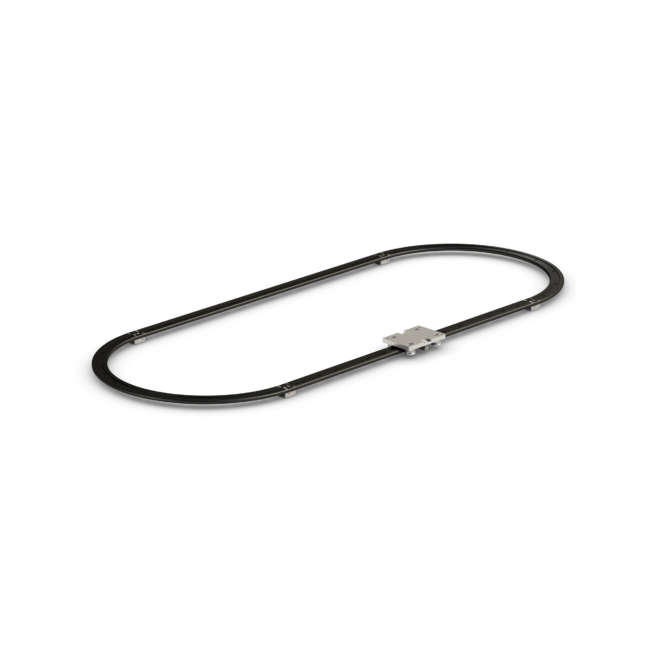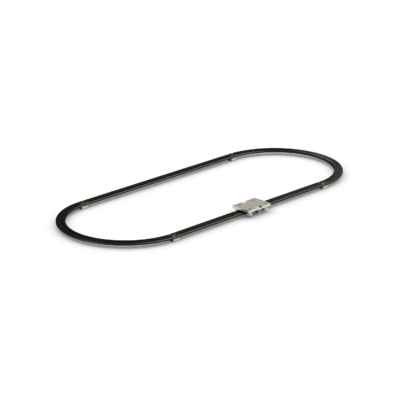CLT
The Essential
The CLT rails, designed for maximum flexibility, enable various configurations with extreme simplicity through the combination of glides, curved guides available in two radii (165 mm and 302.5 mm) and straight guides with a maximum guide length of 2000 mm. The sliding guides are ground and ensure low friction, excellent sliding properties and low noise levels. They are nitrided (60 HRC) to ensure high hardness and corrosion resistance.</span
Key features:
- The curved guide (CLTN43) is made of nitrided steel and is available in radii of 165 mm and 302.5 mm, in sectors of 90° and 180° respectively.
- The straight guide (CLTN43) is made of nitrided steel and is available in different lengths: 250mm, 500mm, 750mm, 1000mm, 1500mm and 2000mm.
- CLT has glides with an aluminum housing with four fixed castors that are preconfigured depending on the radius used.
- The precision rollers are equipped with double-row ball bearings to ensure high load capacities in both axial and radial directions. All rollers are fitted with a splash-proof plastic seal (2RS).
- The guide rollers have two contact points on the raceway, are lubricated for life and adjusted for optimum operation.
- The sliders can be fitted with special slow-release felt pads, which are designed so that the felts are always in contact with the raceways and ensure perfect lubrication.
- With the help of an automatic pump, it is possible to lubricate the raceways through the holes provided in the guide.
- For the jointing, CLT is supplied with a steel alignment block (CL43-01W) for easier and correct mounting.
- An aluminium spacer (CL43-03W) is also available to assemble the circuit on the mounting surface without interference with the rollers.
Main Recommendations
- Available sizes: 43.
- Max. Working speed*: 7 m/s (276 in/s).
- Max. Acceleration*: 15m/s² (590.55 in/s2 )
- Max. radial load capacity*: 8000 N (per slider)
- Temperature range: -20 °C to +120 °C (-4 °F to +248 °F).
**Depending on the application, rollers and guides are suitable components for high speeds and accelerations, which must be evaluated in relation to the mass transported. In the transition between straight and curved sections, inertia forces limit the permissible speed or transported mass.


